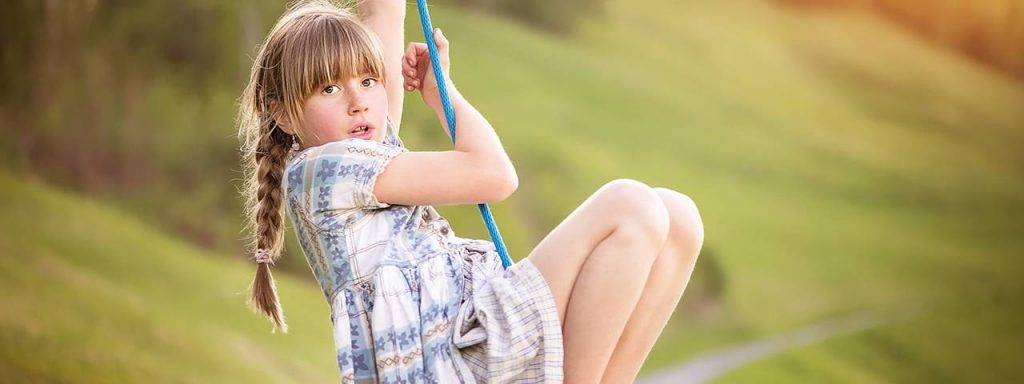Not only does spending time outdoors have significant health benefits, it can even help to slow down myopia progression in children.
Myopia, more commonly known as nearsightedness, is a refractive error that affects millions of children and adults worldwide. This distance vision problem generally develops during childhood, as the eyes are still growing, and occurs when the eyes grow too long from front to back (axial length).
Myopia causes the light that enters the eye to be focused in front of the retina, rather than directly on the retina— and results in blurred distance vision.
Myopia can be inherited, or can be caused by certain lifestyle habits, such as prolonged screen time and other near vision tasks.
With increasing indoor “play” such as video games and watching television, the amount of time children spend outdoors has significantly decreased.
Studies show that children who spend just one hour outdoors each day can reduce their risk of developing myopia by over 14 percent.
Being outdoors and focusing on objects in the distance gives your eye muscles a chance to relax— especially after hours of staring at the screen or learning in the classroom.
Similar to the other muscles in the body that need to relax after periods of strengthening or constant use, the eye muscles need to relax as well.
Eye doctors recommend spending between 60 and 80 minutes outdoors everyday to promote eye health and reduce the risk of myopia development.
If your child’s myopia is worsening, contact an eye doctor near you who can diagnose and treat with a program of Myopia Management.
SEE RELATED: Should I Be Worried About Myopia?
How to encourage outdoor play
If you are having a hard time getting your child away from the screen and out the door, these tips can help make outdoor time more exciting for your child.
- Play with your child. Not only will this help your child get outdoors, but it will also help you to gain from the benefits of being in the sunshine as well.
- Play their favorite sports. If you child knows that going outside means playing their favorite sport, they are more likely to put down the digital device and challenge you to a game.
- Explore the neighborhood playgrounds. Finding new playgrounds to go to every week will keep things exciting— a new slide, swing, or climbing area can make going to the playground a thrilling experience for children.
- Find new hiking trails. Discovering new places to visit, especially when nature is involved, will not only help your child to get outdoors, but will also encourage them to explore different aspects of nature.
- Plan a picnic or barbeque. Invite some friends and family to a picnic or barbeque, or have special alone time with your child—these meals will create memories that will last a lifetime.
- Organize a scavenger hunt. What is more fun than searching for candy or hidden prizes? Not only will this encourage outdoor play, it will also help your child to learn how to be creative when it comes to playing outside.
Playing outdoors has been shown to reduce the risk of myopia development in children.
But don’t forget, if you are planning to venture outdoors, even for just one hour, always bring a pair of UV protected sunglasses, sunscreen, and a wide brimmed hat for maximum protection against the sun’s harmful UV rays.
If your child has been diagnosed with myopia, playing outside can also help to reduce their risk of myopia progression, which can lead to more serious vision problems in the future.
LEARN MORE: Guide to Pediatric Eye Conditions
Schedule an appointment with an eye doctor for a comprehensive eye exam, and to discuss any questions you may have about Myopia Management for your child’s worsening myopia.










